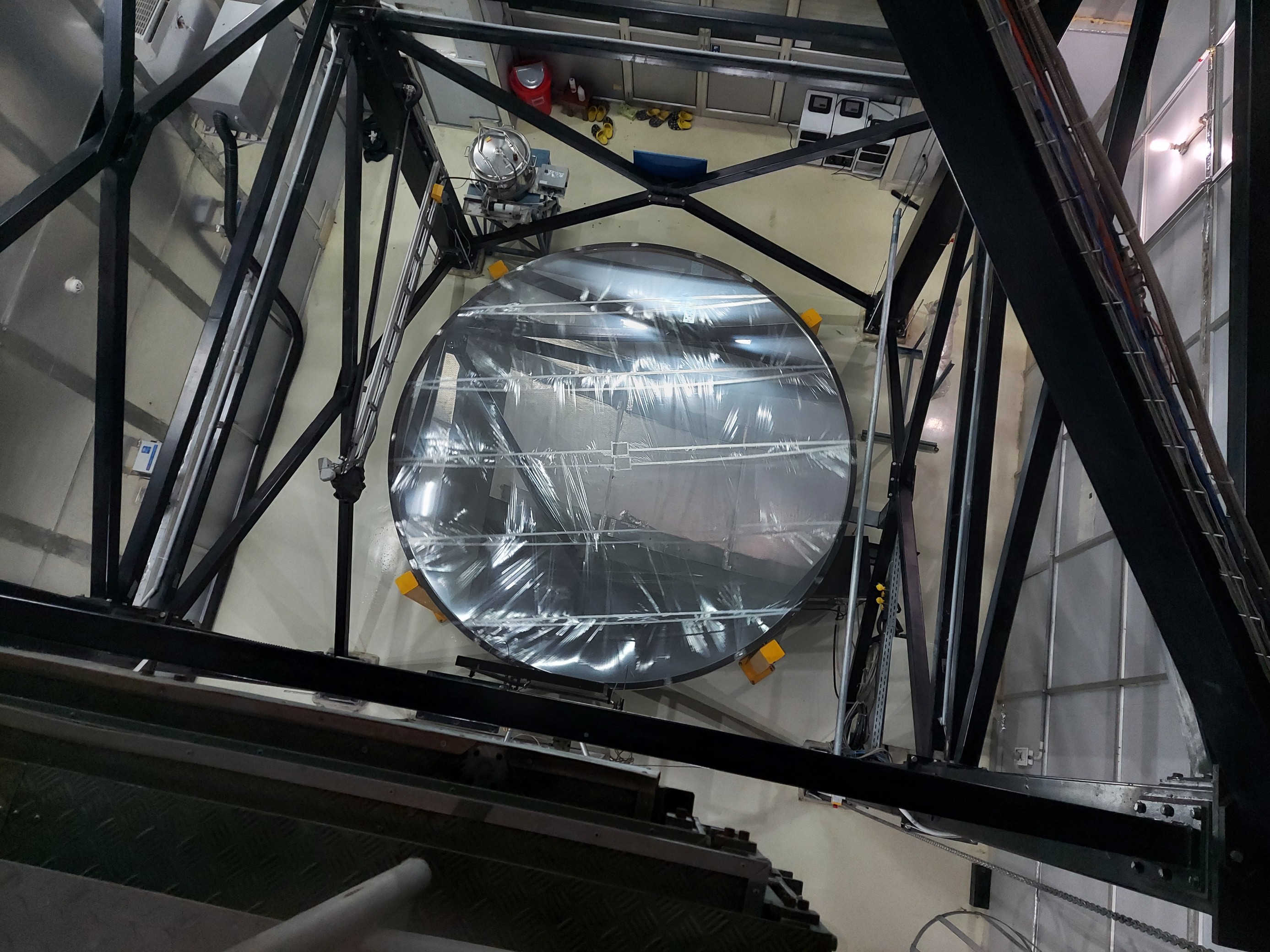ILMT @ ARIES

The top view of the ILMT shows the liquid mercury mirror covered by a thin mylar film.
The 4-meter International Liquid Mirror Telescope (ILMT) in India is the world's largest liquid mirror telescope
and the first of its kind in the country, located at Devasthal Observatory, Uttarakhand (2,450m altitude).
Using a rotating layer of mercury to form a perfect parabolic mirror, it is cost-effective and ideal for surveying
transient celestial objects like supernovae, asteroids, and variable stars. Unlike traditional telescopes,
ILMT is fixed and always points at the zenith, capturing a continuous strip of the sky as Earth rotates.
A collaboration between India, Belgium, Canada, Poland, and Uzbekistan, it advances time-domain astronomy
by detecting objects that change over time.
ILMT achieved first light on the 29th of April 2022 and, following a series of tests and corrections,
was formally inaugurated on the 21st of March 2023.
(website)
| # | Partner Institute | Location |
|---|---|---|
| 1 | ARIES | Aryabhatta Research Institute of Observational Sciences (Nainital, India) |
| 2 | ULiège | Université de Liège (Belgium) |
| 3 | University of British Columbia | (Canada) |
Location Details
| Location | Devasthal, India |
|---|---|
| Coordinates | 29°21′42"N 79°41′06"E |
| Altitude | 2450 m |
| Type | Zenith-pointing fixed liquid mirror telescope. |
| Size | 4.0m |
| Operated by | ARIES (Nainital, India) |
| Instruments | 4Kx4K CCD camera Imager |
Observing Cycles
ILMT is used for continuous zenith monitoring within a narrow 22 arcminute strip of sky at a latitude of ~+29° 22’ 26”. The telescope is shut down during the monsoon (June - September)
4k X 4k Imaging Camera
- Detector: 4K x 4K
- Field-of-view (Size and shape): 22 arcmin in diameter
- Wavelength range: 4000 to 11000 Å
- filter (broad): SDSS g', r', i'
- operates in Time Delay Integration (TDI) mode